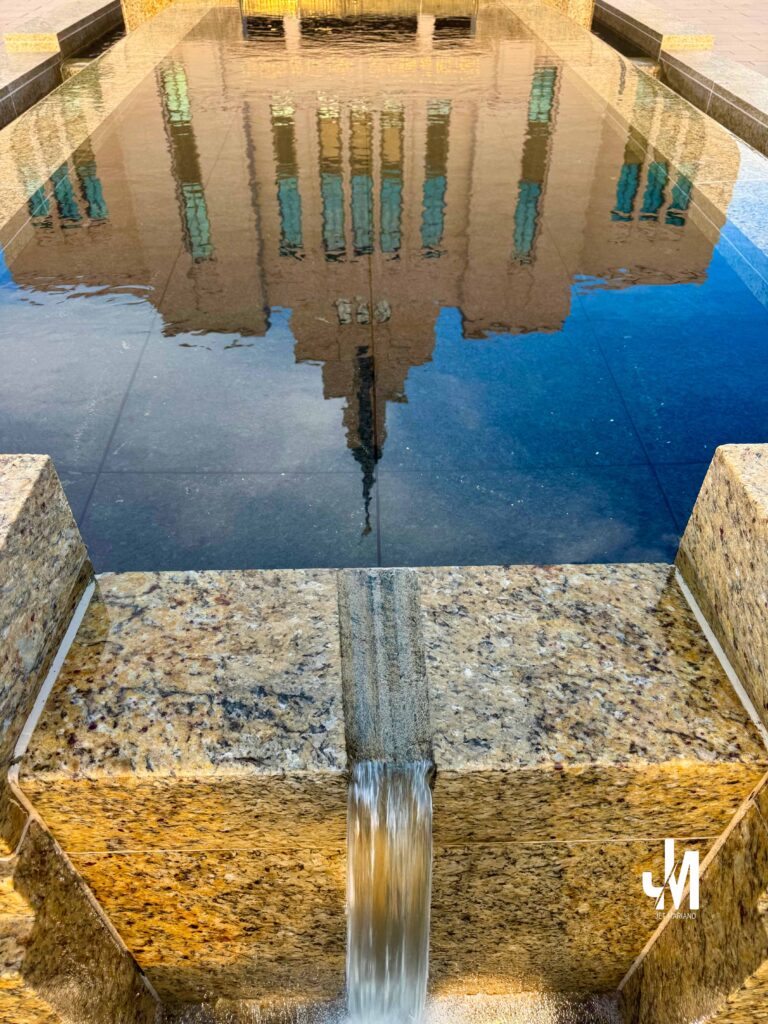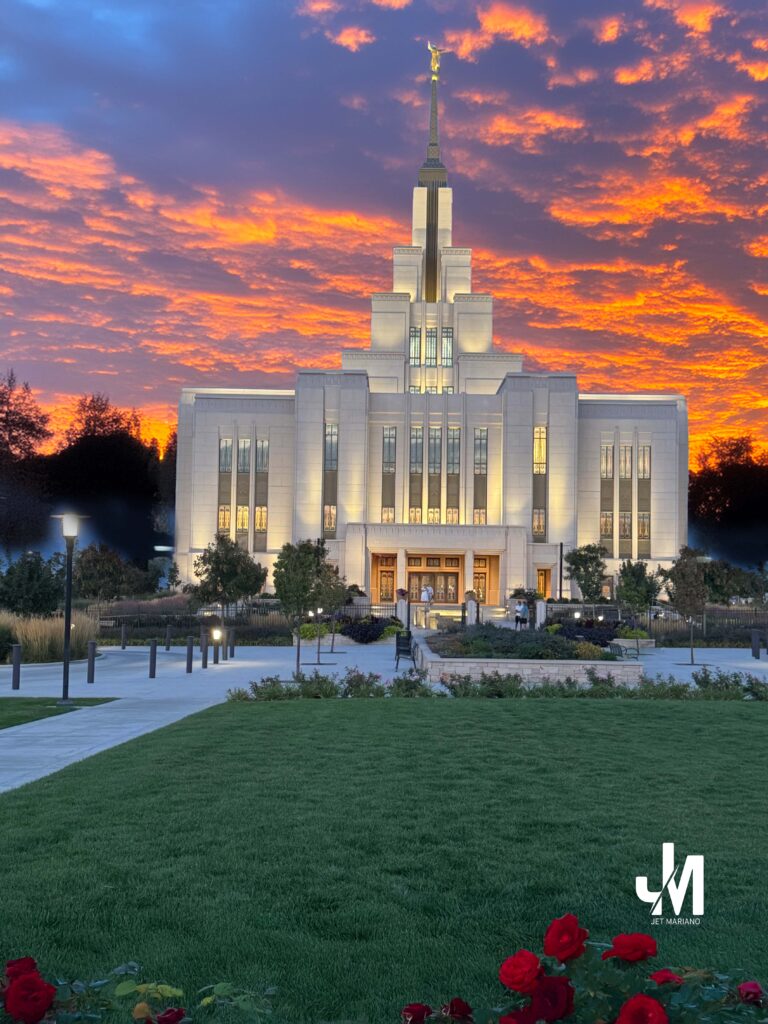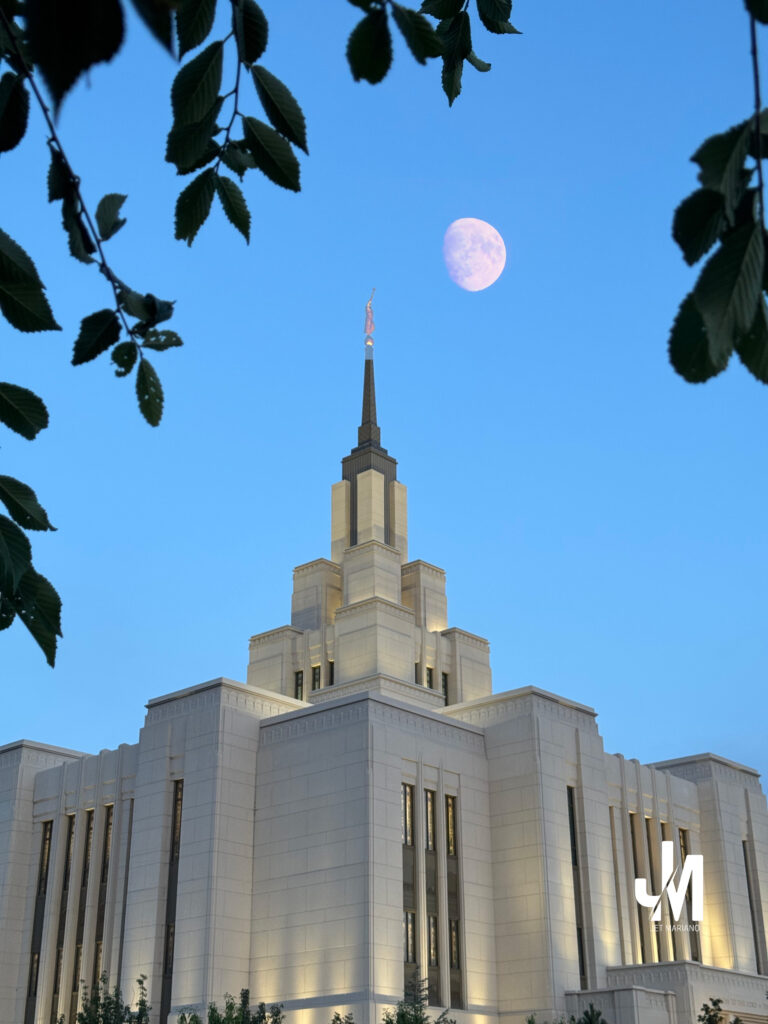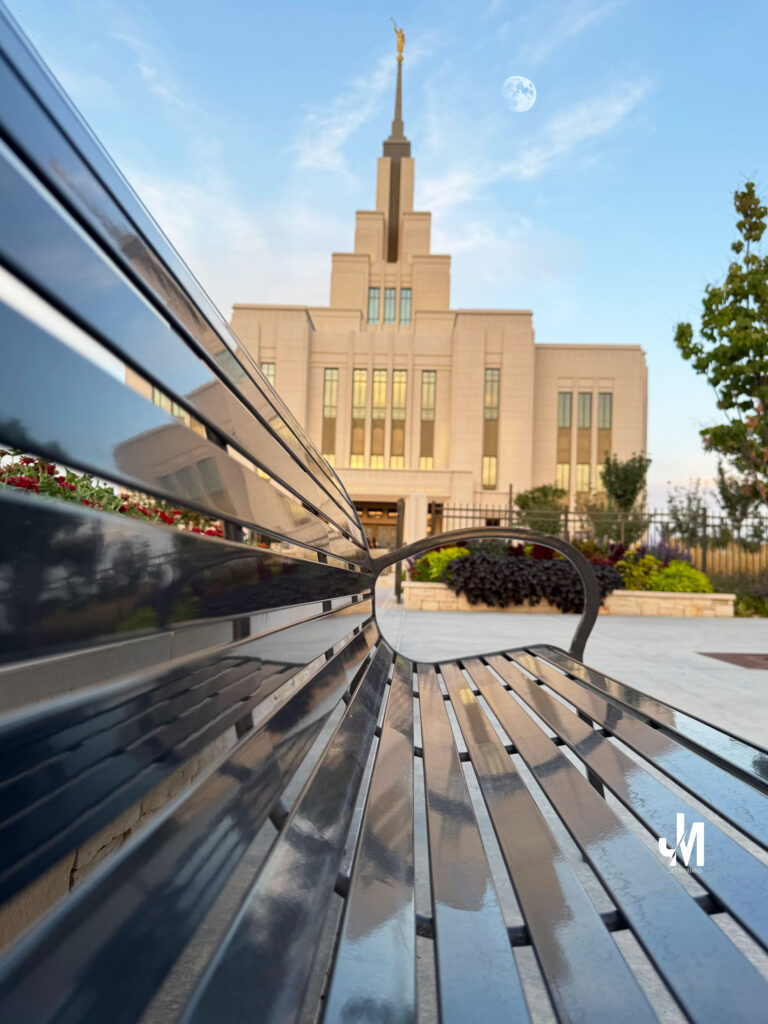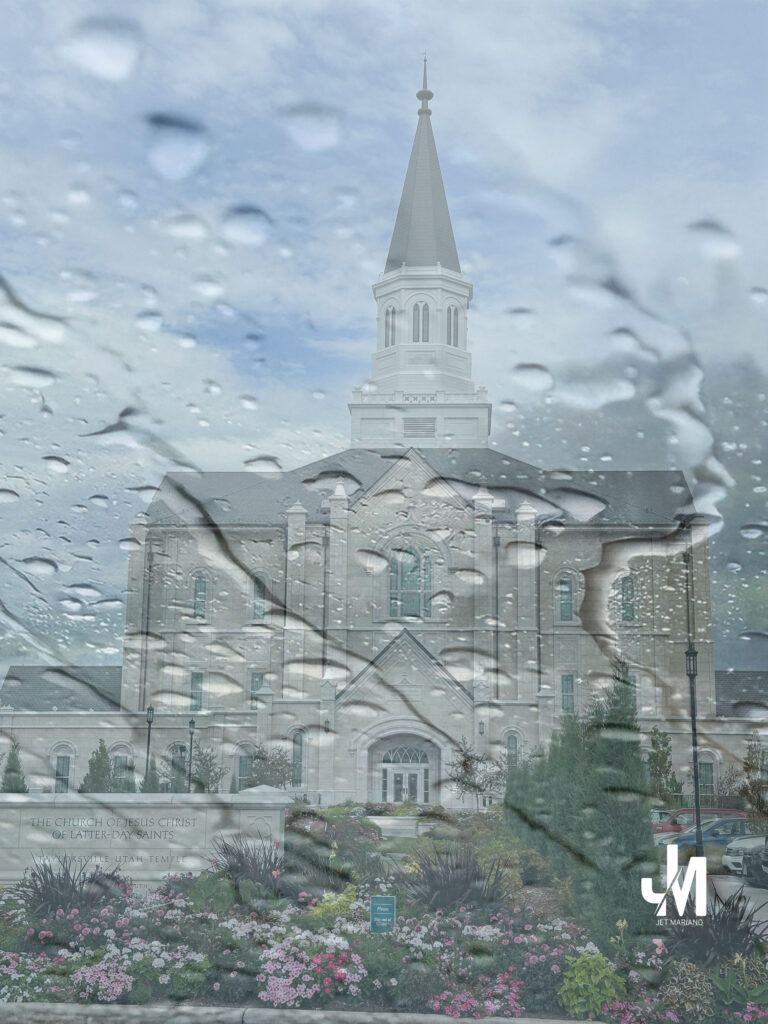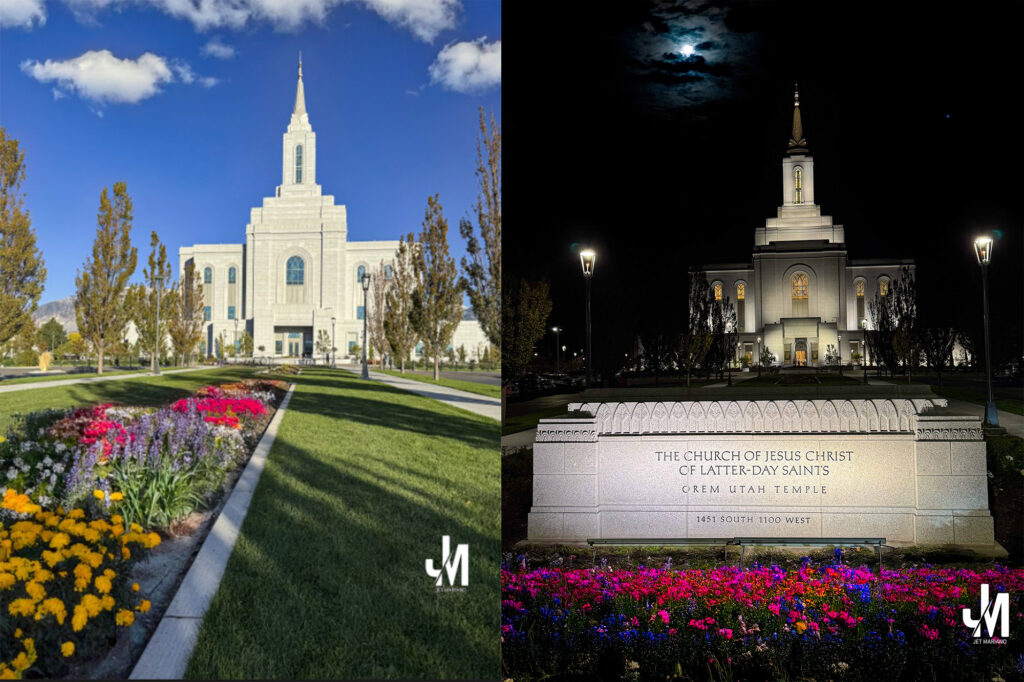
Night: The Orem Utah Temple illuminated under the moon—taken after completing sacred ordinances.
Excerpt
Becoming is more than doing—it’s transforming. The gospel doesn’t just ask for effort; it asks for change.
Intro
These photos were taken on October 18, 2025—before and after my proxy endowment at the Orem Utah Temple. The sunlight and moonlight felt like bookends to a sacred day.
I never photograph temples as a tourist. Each image is a memory of worship—an imprint of the moment I performed sacred ordinances and left a part of my old self on the altar. The lens simply helps me remember what the Spirit taught that day.
President Dallin H. Oaks’ message “The Challenge to Become” echoed in my mind as I walked the temple grounds: the gospel is not about what we do but who we become through covenant living.
Perspective
The temple reminds me that becoming is a process. Every ordinance refines character. Every act of service—inside or outside the temple—draws me nearer to what Heavenly Father intends me to be.
President Oaks’ invitation is personal: the world values performance; heaven values transformation. My work, my worship, and my quiet efforts at home and at Church are all shaping me into something more Christlike.
When I leave the temple, I ask not, “What did I accomplish?” but “Who am I becoming?”
Direct Quotes from President Oaks
“It is not enough for anyone just to go through the motions. The commandments, ordinances, and covenants of the gospel are not a list of deposits required to be made in some heavenly account. The gospel of Jesus Christ is a plan that shows us how to become what our Heavenly Father desires us to become.”
“In contrast to the institutions of the world, which teach us to know something, the gospel of Jesus Christ challenges us to become something.”
Practice (today, not someday)
I will focus less on checking boxes and more on softening my heart. In every task—whether leading, fixing, or serving—I’ll remember that heaven measures growth, not status.
Becoming Christlike happens quietly: through patience with others, humility in learning, and gratitude after every challenge.
Final Reflection
President Oaks’ counsel changes how I see discipleship. The gospel isn’t a checklist; it’s a journey of transformation. Every temple visit, every ordinance, every prayer adds to who I am becoming.
I’m grateful the Lord sees me not as I am but as I can be. That vision gives purpose to every struggle, reminding me that growth is the goal—and grace is the guide.
Pocket I’m Keeping
“The gospel of Jesus Christ challenges us to become something.”
That single line redefines every effort I make.
What I Hear Now
“Keep walking. You’re not just doing—you’re becoming.”
Behind the Shot (BTS)
Saturday, October 18, 2025—before and after my proxy endowment at the Orem Utah Temple. The late afternoon light revealed bright autumn blooms; by nightfall, the temple glowed beneath the moon. Both shots symbolize the Lord’s invitation to grow from light to greater light.
Link to the Talk
The Challenge to Become — President Dallin H. Oaks
https://www.churchofjesuschrist.org/study/general-conference/2000/10/the-challenge-to-become?lang=eng
© 2012–2025 Jet Mariano. All rights reserved.
For usage terms, please see the Legal Disclaimer.
